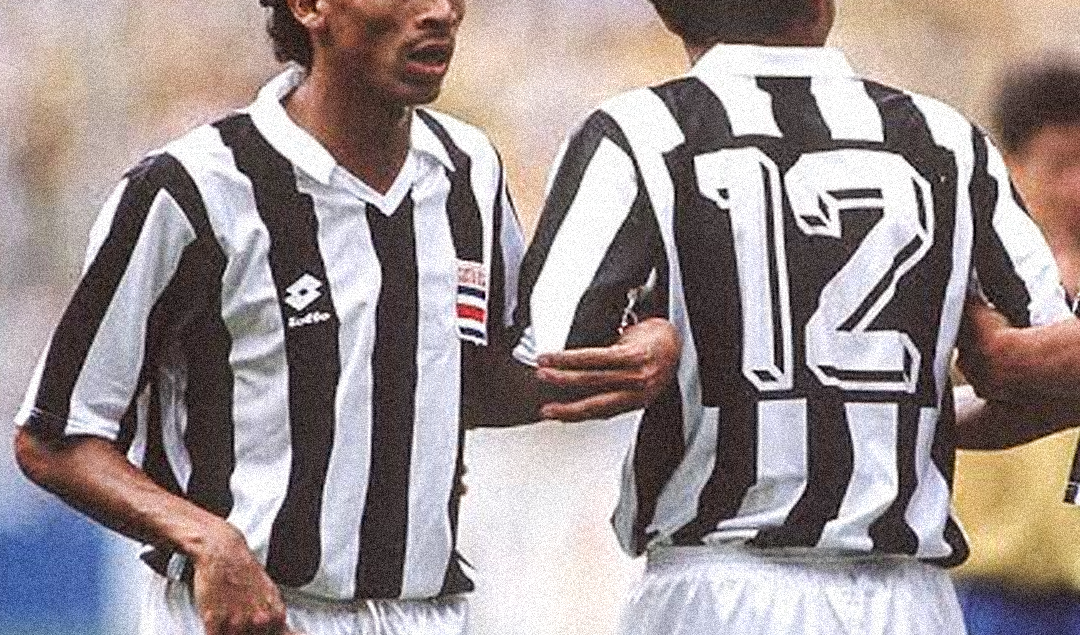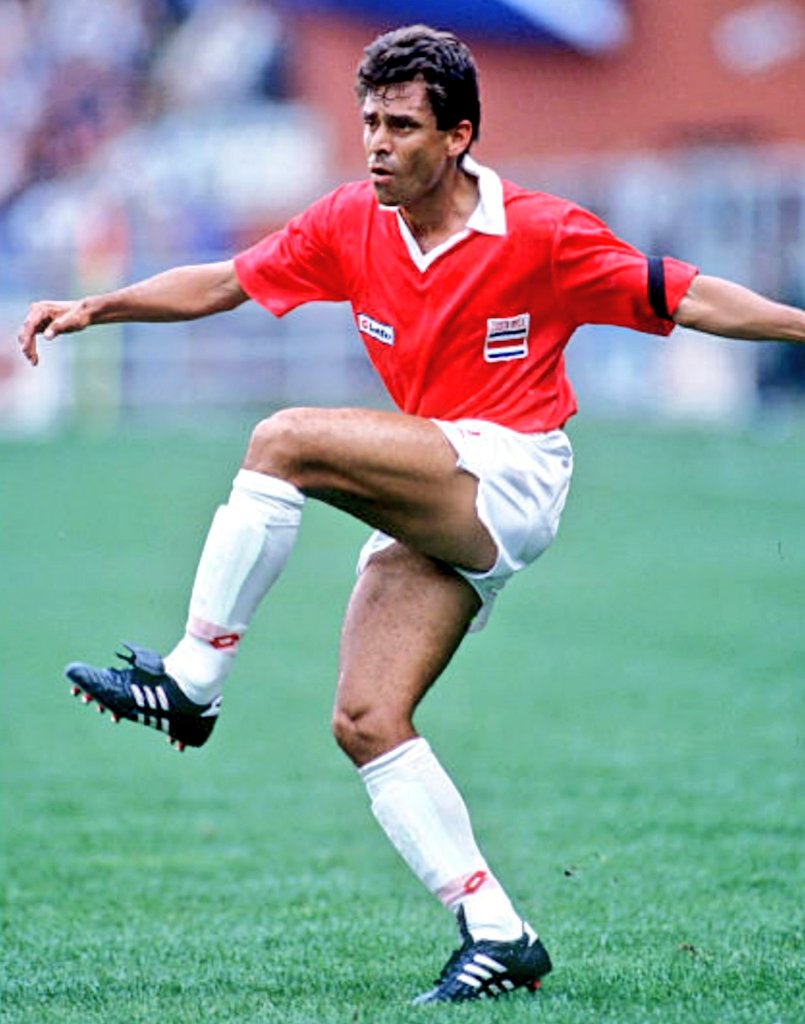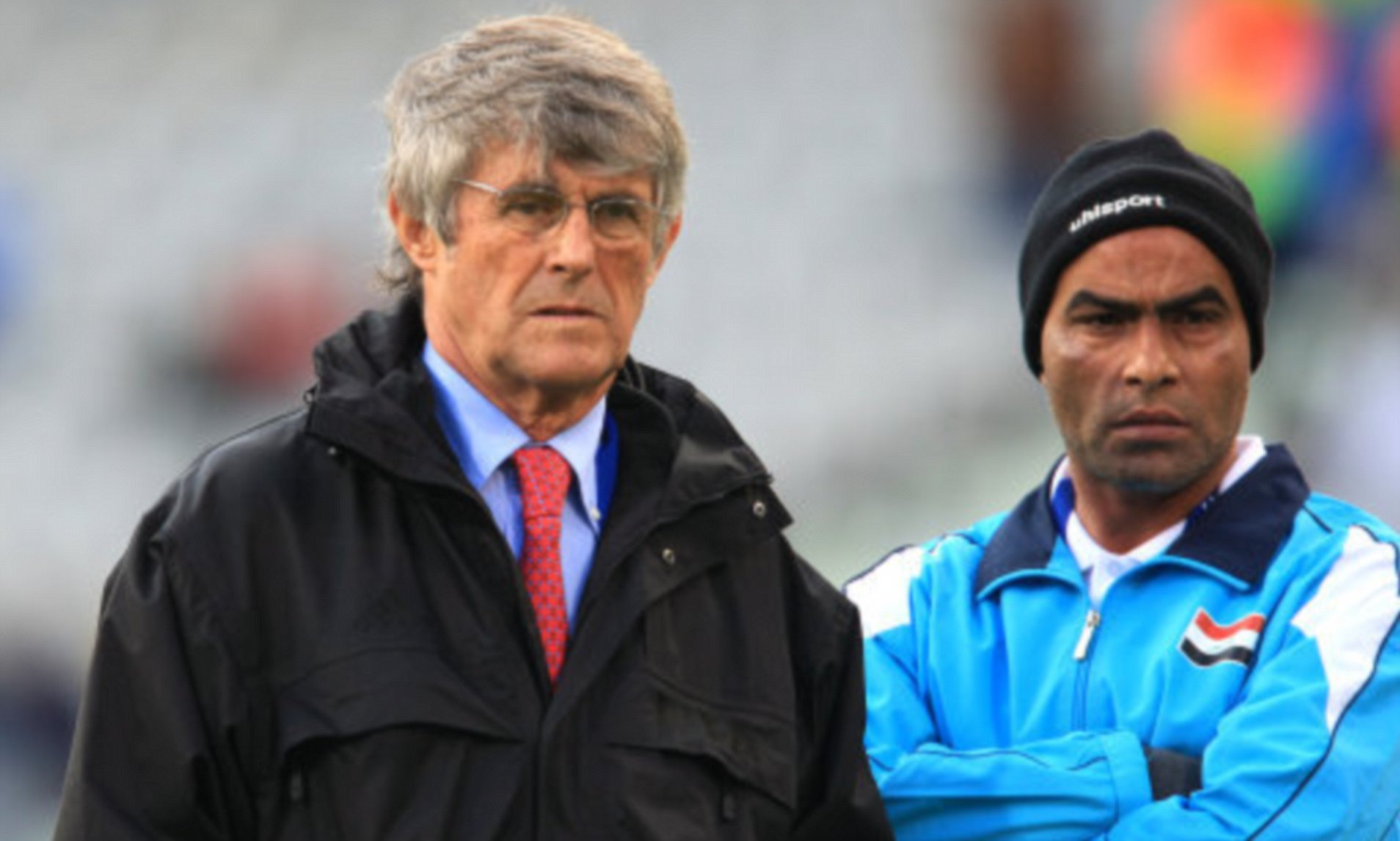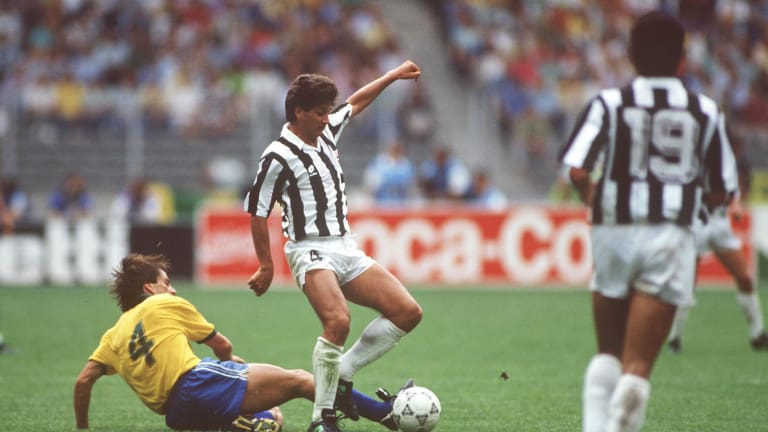Costa Rica and Italia ’90: Part 2: Punching Above Their Weight
Costa Rica’s historic qualification for the 1990 World Cup meant Los Ticos had several months to prepare for the tournament in Italy. The preparation would be needed, as the draw in December pitted the World Cup debutants in Group C with Brazil, Scotland and Sweden.
Yet preparations would be far from ideal. Machinations within the Costa Rican Football Federation meant those within the organisation that backed Marvin Rodriguez fell by the wayside, which made Rodriguez’s tenure insecure.
Despite Rodriguez’s brilliance in getting Los Ticos to a World Cup, he had a tendency to get into spats with players. It all came to a head in February 1990 when Jose Carlos Chaves, one of the veterans in the squad, quit the national team in protest at Rodriguez’s coaching methods in the lead up to such an important competition.
“It was a matter of principle,” Chaves told Costa Rican paper La Nacion. “I did not believe in what was being done and decided to resign, even though it was my last opportunity to play a World Cup and it was the first time we would go to one.”
Less than a month later, Rodriguez was dismissed as manager of the national team and replaced by Bora Milutinovic. The Yugoslavian had experience of World Cup football, guiding Mexico to the quarter finals four years earlier when they hosted the tournament.
His time in Mexican football meant he was fluent in Spanish and over the next few months drilled his players rigorously in the short time he had with his players.
However, when the 22 man World Cup squad was announced in late May, there were several notable omissions. Evaristo Coronado and Leonidas Flores, so crucial to Costa Rica’s World Cup qualification, were cut from the squad.
The axe also fell on Pastor Fernandez, the midfielder whose goal against El Salvador clinched their place in Italia 90. One player that had been selected was Jose Carlos Chaves.
Flores would say later on he was never told why he had been omitted from the squad but Miluntovic in a piece for the Coaches Voice simply said:
“I came into the national team only 70 days before the 1990 World Cup. Even though there was little time, I made the changes I considered appropriate,”
Such flux within Costa Rican football meant observers were not positive about Costa Rica’s hopes in the competition, with some thinking Los Ticos would be the whipping boys of the tournament.
Prior to their opening game against Scotland in Genoa on the 11th June, Miluntovic recollected at how many seemingly wrote off their chances:
“I remember what happened before that game. Before the match, on the way to the stadium, everybody was waving five fingers at us, signaling that they would score five goals against us.”
Photo: Empics Sports
Scotland would begin the game on the front foot, enjoying the lion share of possession in the first half. Yet despite their dominance on the ball, Scotland found themselves frustrated by the resoluteness of Costa Rica’s defence. Hours of drilling under Miluntovic, guided by the captaincy of sweeper Roger Flores, Los Ticos restricted them to a few half chances.
The only time Costa Rica’s defence was split open in the first half was when a lofted ball into the box by Scotland’s captain Roy Aitken found Richard Gough open inside the 18 yard box.
However, instead of hitting the ball first time towards goal, Gough headed it back to striker Mo Johnston and his shot was parried away by Conejo. The score would remain goalless at half time, with observers impressed at Costa Rica’s ruggedness in defence.
It would take less than five minutes into the second half for Los Ticos to show what they could do in attack.
Hector Marchena, then utilised as a defender by Miluntovic for the game, made a run towards the 18 yard box that Scotland’s players were not quick to close down.
Marchena’s short pass to Claudio Jara, collecting the ball just inside the box, had caused Scotland’s right back Stewart McKimmie (who had come on as a substitute a few minutes earlier) to race towards the Costa Rican forward.
In response to this, Jara instinctively backheeled the ball left to Juan Cayasso, now left wide open after his marker McKimmie had raced towards Jara.
Sensing the immediate danger, goalkeeper Jim Leighton rushed out from his line, but Cayasso struck the ball first time that squirmed past Leighton into the back of the net.
A few hundred Costa Rica fans in the stadium exploded with joy, as Cayasso rush towards the corner flag with his arms aloft in celebration.
Realizing they were facing a World Cup shock, Scotland poured forward in search of a goal, spurred on by the thousands of Scottish fans in the stadium.
Dominating possession as the second half wore on, they began to create several chances, but on each occasion were denied by a mixture of Conejo and the defence. Conejo was in inspired form, making several saves when called upon, which included an one-on-one save from Mo Johnston.
Costa Rica held onto a famous victory, which led to incessant booing and whistles from the Scottish fans, but jubilant celebration from Los Ticos’ players.
Such an victory against the odds had surprised many people, but Costa Rica had no time to dwell on what happened in Genoa, as their next game was against Brazil five days later in Turin.
Photo: Getty
The Selecao, who had beaten Sweden 2-1 in their opening group game, had an impressive squad littered with star players synonymous with world football in the late 1980s and 90s: Claudio Taffarel, Jorginho, Dunga, Branco, Careca, Bebeto and Romario.
It didn’t take long for Brazil to display their attacking intent against Costa Rica, as in the first 30 seconds Brazil’s first shot on goal whistled narrowly wide of the post.
The Selecao dominated possession, with their patience rewarded on 33 minutes when a flick on from a long throw in found Brazilian striker Muller, whose shot was deflected off Costa Rica captain Roger Flores and wrong footed Conejo.
Brazil had a litany of chances to increase their lead throughout the second half. It would be the combination of last ditch defending, lack of composure from Brazil, the alert goalkeeping of Conejo and hitting the woodwork several times that kept the score 1-0 by full time.
A loss by a single goal to the Selecao was nothing for Costa Rica to be ashamed of, as better teams had lost by far more to Brazil.
However, Scotland’s surprise 2-1 win vs Sweden meant the final round of group matches was finely poised. If Brazil beat Scotland then the winner of Costa Rica vs Sweden in Genoa would automatically progress to the round of 16.
The Scandinavians had been tipped as potential dark horses prior to the tournament. Their squad was a mixture of experienced players like Thomas Ravelli, Johnny Ekstrom, Glenn Stromberg, Anders Limpar and captain Glenn Hysen.
Furthermore, their squad had emerging talents like 21 year old Stefan Schwarz and 20 year old Tomas Brolin, who would make their mark on the World Cup four years later in America.
Despite their strong squad, two defeats against Brazil and Scotland meant this was the last chance saloon for the Swedes.
The game did not spring into life until the 31st minute when Sweden broke the deadlock.
A free kick just outside the box was fiercely struck by Schwarz towards goal. Conejo could only parry the ball as far as Ekstrom who slotted in the rebound from close range.
Now with the initiative, Sweden looked to kill the game off, but were just not able to break past the determined Costa Ricans, not helped by squandering a few decent half chances.
As the second half wore on, Los Ticos began to get more into the game, their confidence growing so long as the score remained 1-0.
Miluntovic looked to capitalize on this by making two attacking substitutions, midfielder Roger Gomez for striker Hernan Medford on 60 minutes and German Chavarria for striker Alexandre Guimaraes in 73 minutes. Less than 120 seconds after Guimaraes came on, Costa Rica struck.
After winning a free kick to the right of Sweden’s 18 yard box, midfielder Ronald Gonzalez delivered a outswinging cross to the near post, where an unmarked Roger Flores flicked the ball into the bottom corner.
Wheeling away in delight towards the corner flag, the captain was mobbed by his teammates, while Sweden’s defenders raged at the midfielders covering the edge of box for failing to track Flores.
As the game entered its final quarter, it was a matter of whose resolve would break first. The answer came with just two minutes remaining.
Collecting a wayward pass from an Costa Rican player in his box, Swedish goalkeeper Thomas Ravelli kicked the ball downfield. His clearance had height, but did not have distance, barely reaching past the halfway line.
It was met by a Costa Rican header that sent the ball back into the Swedish half. Hernan Medford was quick to the loose ball and used his pace to gallop past the static defenders.
Controlling the ball, the striker found himself one-on-one with Ravelli, the biggest moment of his footballing career.
Better players had fluffed their lines when presented with clear cut opportunities, but the 22 year old Medford showed ice cool composure beyond his age by slotting the ball past Ravelli into the bottom corner.
The scenes were one of pandemonium, as Medford was swamped by fellow players and the coaching staff. Ecstasy for Los Ticos was met with anger from one Swedish fan clad in a Viking helmet, storming the pitch before being taken down by stewards. Medford’s goal broke the Swedes and had little time to respond.
Full time heralded history for Los Ticos by progressing to the knockout stages in their very first World Cup. The joy on the field by the players was magnified in Costa Rica, as thousands celebrated in the capital San Jose and throughout the country. They had overcome the odds.
But their victory had come at a cost.
Their goalkeeper Conejo, so resolute and inspirational in the group games, had suffered an ankle injury during the game against Sweden.
Despite their best efforts in the form of injections, Conejo was ruled out of their last 16 tie against Czechoslovakia in Bari. His replacement was Hermidio Barrantes, relatively inexperienced on the international stage and only debuted early last year.
Czechoslovakia needed just 11 minutes to score, as midfielder Lubomir Moravcik’s cross was headed in from close range striker Tomas Skuhravy.
Costa Rica would hold firm under Czechoslovakian pressure and were rewarded 11 minutes into the second half. Winning a free kick more or less in the exact position prior to their equalizer against Sweden, history once again repeated itself.
This time it was Oscar Ramirez who provided the outswinging delivery and Roger Gonzalez the thumping header that left goalkeeper Jan Stejskal stranded.
However, it would take just six minutes for Czechoslovakia to retake the lead. Costa Rica failed to clear their lines from a cross, with a wayward clearance duly headed back into the six yard box, which Skuhravy took advantage of by skipping past his marker to head the ball past Barrantes.
The Czechoslovakians put the game to bed with 13 minutes remaining, as Lubos Kubik fantastically struck a free kick into the top corner from 25 yards, leaving Barrantes rooted to the spot. Skuhravy would complete his hattrick of headers five minutes later from a corner at the near post.
Los Ticos may had been comprehensively beaten by the Czechoslovakians, but they had punched above their weight. Many who thought Costa Rica were there to make up the numbers soon changed their tune – impressed by their spirit, character and organisation.
When the team and coaching staff arrived home on the 28th June they were given a wondrous reception. Roger Flores recollected to La Nacion:
“We were on the plane to Italy and the captain told us that he was going to fly a little lower because people were going to greet us with mirrors. I had the privilege of being in the cabin and I could see all the mirrors. We shed some tears from the emotion.”
When the plane landed in San Jose they were treated like heroes, taken to the national stadium in a white cargo truck so to receive the adulation of spectators lining the road.
Once they reached the stadium, which was full to capacity, they were met by then President Rafael Angel Calderón and given gifts. It was a day few would forget for as long as they lived.
The squad would break up, as Bora Miluntovic left soon afterwards and took up a role as manager of the USA national team, where he would repeat his magic in the 1994 World Cup.
Alas, the Costa Ricans failed to qualify for the that tournament, but their efforts in 1990 served a greater purpose. It helped inspire the future generation, producing new talent like Paulo Wanchope to qualify for the 2002 World Cup.
The growth of Costa Ricans playing in European leagues would lead to their finest hour in the 2014 World Cup by reaching the quarter finals.
The spark that lit a fire under Costa Rican football in Italia ’90 and beyond is a legacy to be cherished.
By: Yousef Teclab
Photo: Gabriel Fraga





